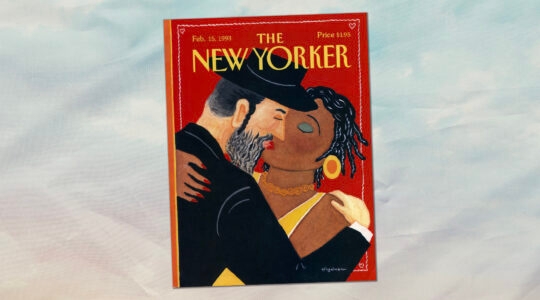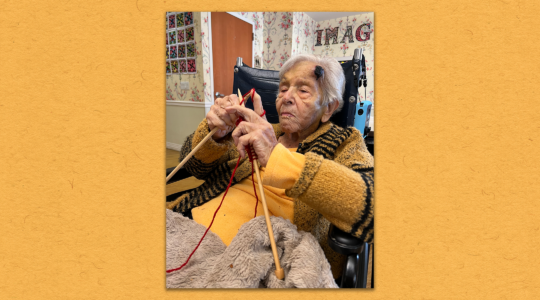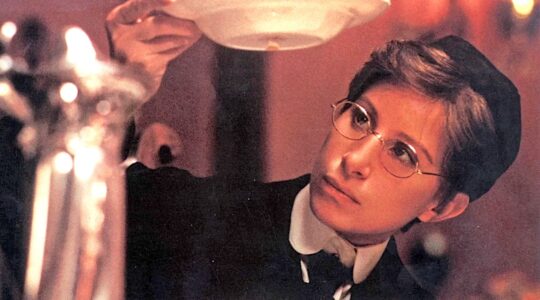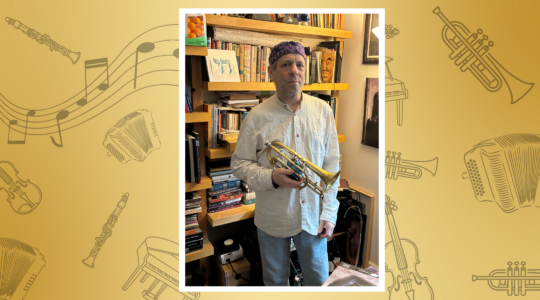As an aspiring rabbi, Ethan Witkovsky sees one of his goals as “helping people draw closer to their cultural and literary traditions” while making sense of their lives — and he’s ready to meet them in their homes or workplaces or even in local bars and parks to further that process.
In a venture called Brainthirsty, the rabbinical student helps people create discussion groups, most of them based on the social circles they’ve already created, and meets them where they want to meet. “The idea is to give them the opportunity to engage in deep thought and intentional discussion with friends,” often about the human condition.
“I bring beer to every meeting,” he says, along with the other essential feature aimed at spurring discussion — passages from major thinkers, Jewish and non-Jewish alike.
Witkovsky described most of his venture in just two minutes last week at Pitch Night, an event hosted by the Jewish Theological Seminary of America.
He’s among seven JTS students, all in their fourth year of rabbinical school, who’ve been developing projects through a fellowship sponsored by JTS and PresenTense, a Jewish organization focused on innovation as a way to build community. Funded by the David and Inez Myers Foundation, the program has provided grants and mentors to the seven students, nearly all of whom will be ordained in 2014, and is slated to run for another four years, nurturing a new cohort of students each year.
Most of this year’s fellows participated in Pitch Night, which drew representatives of UJA-Federation of New York and other community-based organizations.
Beyond allowing the students a chance to showcase their ventures, the evening also gave them practice in developing an “elevator speech,” said Rabbi Danny Nevins, dean of JTS’ rabbinical and cantorial schools.
“This is a time of transition [for the students] where we’re trying to help them develop the skills” and entrepreneurial tools they need for the real world, Rabbi Nevins said. Naomi Korb Weiss, co-director of PresenTense, said the students “need to represent their vision and be ready to share it with everyone and anyone.” She and others added the ventures created by this year’s cohort could each be a model for engaging the broader Jewish community.
Other students sharing their vision last week included Jessica Minnen, whose venture, Seven Wells, will offer young adults seven monthly workshops on sex and sexuality.
Growing partly from her experience in “pre-marital pastoral guidance,” Seven Wells will enable participants “to better understand their sexual identity and better articulate their sexual boundaries,” Minnen said. As Minnen describes it, each session will be framed by a textual exploration of the eruv, an urban area in Judaism circumscribed by a symbolic line, and a discussion of how Judaism delineates between public and private space.
Hillary Chorney’s venture is a “scrapbook siddur” for the White Meadow Temple in Rockaway, N.J., the 60-year-old Conservative synagogue at which she’s the cantor and rabbinic intern. The idea took shape after congregants engaged in brainstorming sessions about how the synagogue could make its services more meaningful and exciting, Chorney said. She and the rabbi concluded that the synagogue needed a new book that “would incorporate the functional aspects of a siddur and the memorabilia and historical aspects of a scrapbook.”
The New York Jewish Week brings you the stories behind the headlines, keeping you connected to Jewish life in New York. Help sustain the reporting you trust by donating today.




